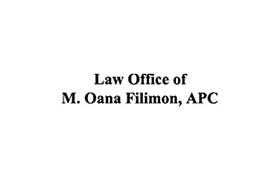Encino Child Custody Lawyer, California
Sponsored Law Firm
-
 x
x

Click For More Info:
-
Law Office of M. Oana Filimon, APC
940 West 17th Street Suite D Santa Ana, CA 92706» view mapDivorce & Family Law A Law Firm That Cares
Let The Law Office of M. Oana Filimon, APC handle all of your Divorce and Family Law legal matters today!
714-571-0375
Includes: Guardianships & Conservatorships, Custody & Visitation
Neal C. Tenen
✓ VERIFIEDChild Custody, Alimony & Spousal Support, Custody & Visitation, Divorce & Family Law
Gerald L. Kane
Estate, Guardianships & Conservatorships, Elder Law, Wills & Probate
Status: In Good Standing
FREE CONSULTATION
CONTACTNelson Frederic Cutter
Divorce & Family Law, Family Law, Divorce, Child Custody
Status: In Good Standing Licensed: 41 Years
Marlene Sue Seltzer
Special Education, Wills & Probate, Estate, Guardianships & Conservatorships
Status: In Good Standing Licensed: 28 Years
Jennifer Lee Skolnick
Deportation, Public Interest Law, Child Custody, Partnerships
Status: In Good Standing
 Oana Filimon Santa Ana, CA
Oana Filimon Santa Ana, CA AboutLaw Office of M. Oana Filimon, APC
AboutLaw Office of M. Oana Filimon, APC

